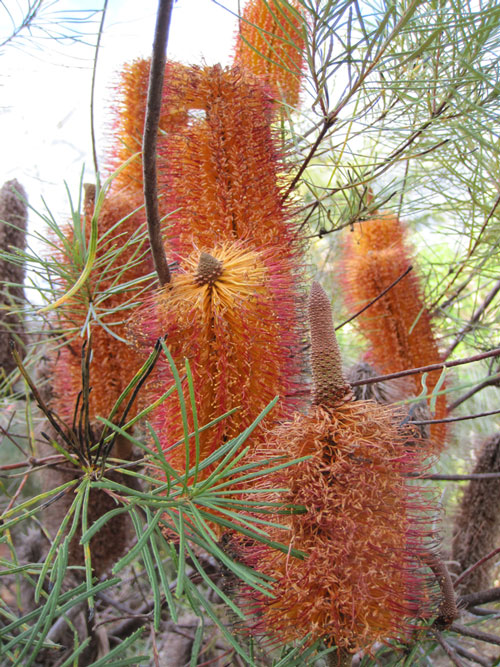Interworkings of Workshops
Add Summary

Blogger: Abigail Lynch, a doctoral candidate in the Department of Fisheries and Wildlife and a CSIS member, blogs from Down Under -- she's in Australia to build a framework for her dissertation research. She's interested in developing a decision-support tool to regulate harvest management strategies for lake whitefish in a changing climate.
Interworkings of Workshops
Monday, July 4, 2011
 This week, I have the opportunity to sit in on a multispecies management workshop organized by Yvonne Buckley. While the objective of the workshop is tangentially related to my research, I very much appreciate being able to observe the proceedings and I’m learning a good deal in the process. Discussions around uncertainty in management measures, over multiple jurisdictions, and how the interactions between species impact management objectives and outcomes (particularly if only one species is managed) ring true to my research and my education goals.
This week, I have the opportunity to sit in on a multispecies management workshop organized by Yvonne Buckley. While the objective of the workshop is tangentially related to my research, I very much appreciate being able to observe the proceedings and I’m learning a good deal in the process. Discussions around uncertainty in management measures, over multiple jurisdictions, and how the interactions between species impact management objectives and outcomes (particularly if only one species is managed) ring true to my research and my education goals.
However, I think the most valuable piece of this experience was comparing it to other workshops where I’ve been a participant. From my limited experience in this arena, it seems that for workshops to be “successful,” they should have:
- clearly defined objectives and goals
- invited participants who can provide a specific perspective/contribution
- preparation materials for the participants as a launching point for the workshop
- a structured approach to utilize the workshop time efficiently
- tangible products (from the workshop or outlined at the workshop for subsequent production).
In deriving this basic list, I am principally compiling information from this multispecies management workshop and an ecosystem approaches to inland fisheries management workshop that I attended in Vientiane, Laos last December, among others. The two workshops had very different goals and approaches, but both meet these few key elements. They may seem basic, but as a participant/observer, these basic components show that there is foresight and purpose to the workshop and that the valuable time of the participants is utilized productively.
Clearly, not a recognized holiday over here in a British Commonwealth, but happy 4th of July!
Lynch's studies are supported by a William W. and Evelyn M. Taylor Endowed Fellowship for International Engagement in Coupled Human and Natural Systems, an International Studies and Programs Predissertation Award, an Ecology, Evolutionary Biology, and Behavior Summer Fellowship, a Graduate School Research Enhancement Award, and a travel award from the College of Agriculture and Natural Resources.



 Print
Print Email
Email




